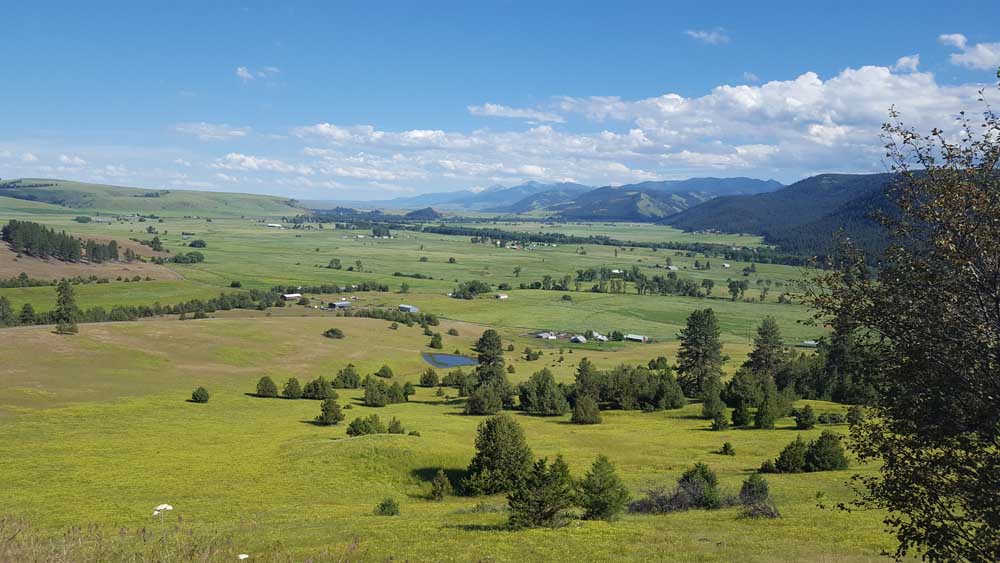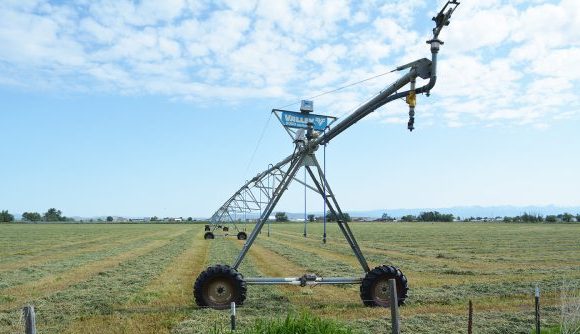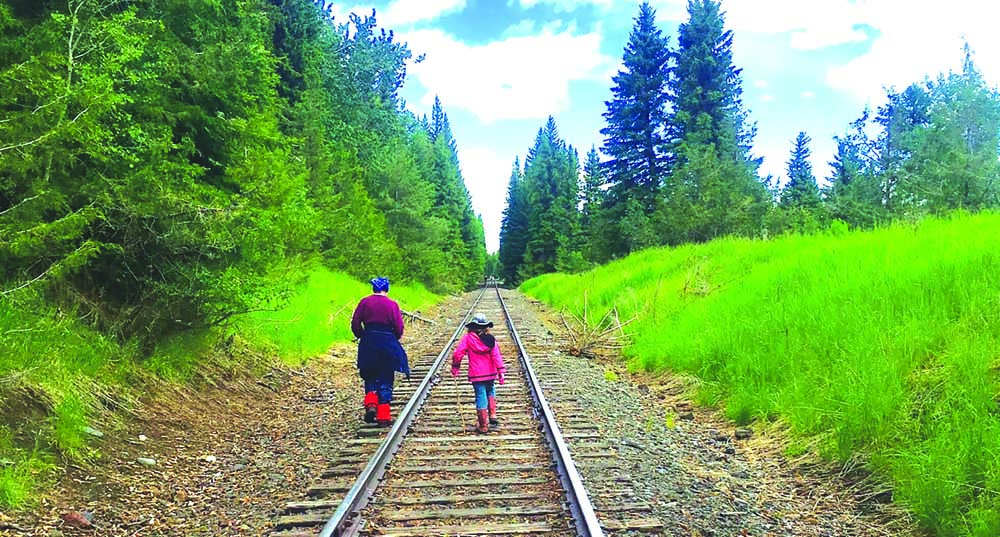Johnsons take pride in Century Farm status
Published 12:39 pm Friday, July 1, 2022

- The farm as viewed from the top of Smith Mountain. The area of Smith Mountain still contains large parcels of land owned by members of the Smith family.
A century is a long time. To reach the 100-year mark, either for a person or a farm, is an achievement.
The Johnson family’s farm, located in the Lower Valley, north of the intersection of Lower Diamond Lane and Highway 82, has been in the family for five generations. Now occupied by Dale Johnson and his wife, Lu, the family can trace its roots in the Lower Valley back to 1872.
At that time, Dale’s great grandfather, J.F Johnson and his wife, Fannie Applegate Johnson, settled in the Lower Valley and proved up on the farm in the fall of 1884. Proving up is the process of the settler finalizing the improvements to the property and continually working the farm for one year.
Al and Nancy Johnson Applegate settled in The Lower Valley in 1883 and in 1884 they traded their homestead to Al’s sister Fannie. Both ranches have been in the Johnson family since that time.
To qualify for Century Farm status, one must apply through the Oregon Historical Society and provide documentation such as land grant papers, granting ownership to settlers and that the farm has been continuously worked for 100 years by the same family.
In the case of the Johnson Century Farm, the farm was a sheep and cattle ranch, with grass hay being the major crop. Dale relates an interesting story of the ranch that took place during the depression. In the middle of the depression, the bank foreclosed on 3,000 sheep on the farm and a few cows and sent them on the train to Portland to be slaughtered. According to Dale, the bank left a few horses and a milk cow.
“They didn’t foreclose on the land because there was no debt on the land,” he said.
After that Dale’s grandfather and father and his four uncles formed the Wallowa Sheep and Land Company.
“Because there were that many working the property the bank agreed to finance them (to get restarted),” he said. “They sold hay for more that fall than they did sheep the year before.”
When they came out of the depression they started raising cattle.
“Hay is a major crop on this place,” he said.
The house Dale and Lu live in now, was built starting in 1918 and was finished in 1921. They bought it in 1979 from Dale’s uncle, Howard. Before returning to work the ranch, Dale was the personnel director for the Corvallis School District.
“We moved up here and went into the farming business,” Dale said
He worked the farm and taught in the Wallowa Schools where he was also the principal for K-12 from 1986 through 1988. He ran the ranch and retired from the schools in 1988 and then just focused on the ranch. He finally fully retired in 2013 at 86. The ranch is currently leased to Baremore Ranch, but is still owned by the family.
Dale’s first job on the ranch was as an 11-year-old derrick driver in 1947.
The Johnsons have four children and in 2000 they gifted the farm to them. Now, two sons own the farm. Dale said their wish is that the land stay in the family, but the reality is the land gets sold and it becomes someone else’s.
“Once you’ve given a gift it’s somebody else’s,” said Lu.
To listen to the Johnsons, it is evident their commitment to the land and family is strong. For them it is about community and leaving a place better than when you found it. And they are understandably proud of earning Century Farm recognition.
Lu mentioned one particular summer she remembered when three generations of the Johnson family were haying together.
“That was absolutely wonderful seeing them working together. They loved it!” she said.
Working on the same land for a century carries deep meaning.
“(It’s) a commitment to the land,” Dale said. “Something solid that isn’t going to go away. You’re part of the community. You’re involved with your neighbors. You work together to share water usage, labor and help your neighbors out.”
Perhaps Lu summed it best.
“It’s exciting. It’s a feeling to know your family has belonged to the land this long,” she said. “A Century Farm makes a statement in history.”









